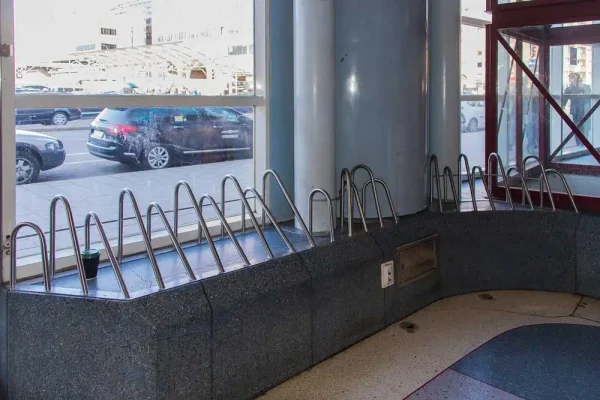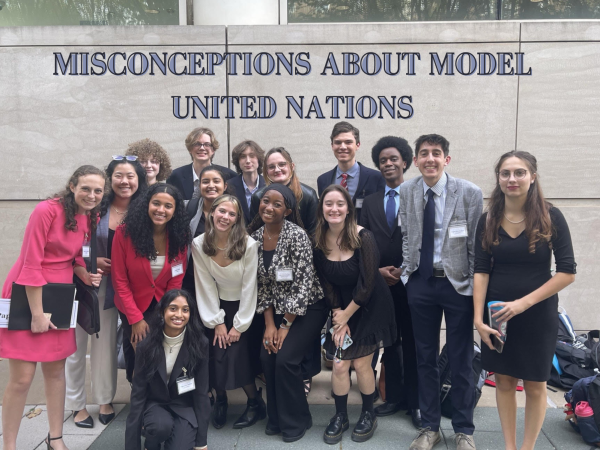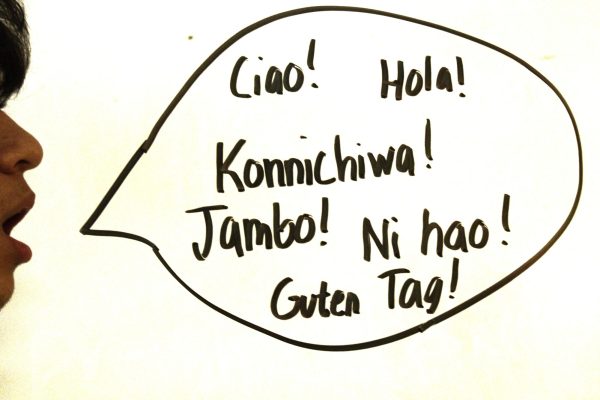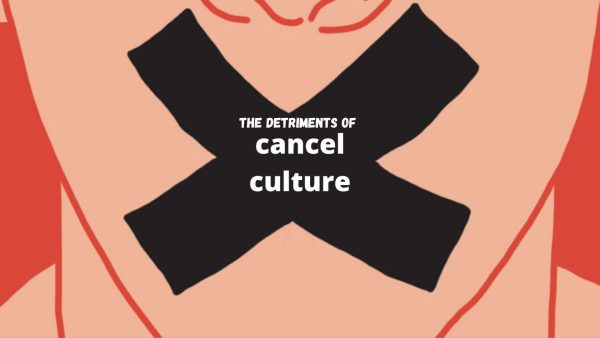The case for staying out of Venezuela
April 24, 2019
If one wishes to understand the present state of a nation, then one must understand its past. No human event has ever taken place in a historical vacuum; the challenge for the analyst of present issues, therefore, presents itself primarily in the choice of a starting point. One could start a discussion of the current situation in Venezuela at any number of points in the country’s long history: the Spanish arrival; Bolivar’s War for Independence; even, for the particularly amnesiac commentator, the accession of President Nicolás Maduro in 2013. For brevity’s sake, though, one may as well begin with the 1998 presidential election.
For Venezuela, the late 1990s seemed a time of insurmountable malaise. The national mood had turned in a decisive way against the persistence of poverty, corruption, and the two-party system. The country, analysts said, felt that the time had grown ripe for a change—and a change Venezuela got.
With the 1998 election, a former military leader turned socialist revolutionary, the candidate of his own small and controversial third party, surged suddenly and unexpectedly to the height of political power. His name? Hugo Chávez. In a series of social and political reforms which Chávez called the “Bolivarian Revolution,” the government nationalized the nation’s leading industries and restructured the Venezuelan system of governance. Propelled by oil revenue, Bolivarian Venezuela, as Chávez and his allies called it, became an example of social transformation to its supporters and a leader in Latin America’s socialist “pink tide.”
The honeymoon did not last. By 2010, the situation had deteriorated once more—a turn of events which Chávez saw not as an indictment of his policies but as a casus belli for “economic war” on the bourgeoisie. Meanwhile, his Venezuela saw increasing international criticism for a cavalier attitude to human rights and a taste for overblown propaganda. By the time he died of cancer in 2013, Chávez had gone from international hero to international pariah.
His chosen successor, current President Nicolás Maduro, has fared little better. A former bus driver and trade unionist, the president has come under unflinching public fire since his election in 2013, with the Venezuelan economy continuing to decline and the government’s human rights abuses becoming ever more flagrant.
In 2018, Maduro came up for reelection. The subsequent election, which Maduro and his allies contend he won, met with unprecedented national and international controversy, with opponents condemning the process as undemocratic and rigged. Since then, the crisis in Venezuela has continued to deepen, and finally, on January 10, the opposition-dominated National Assembly declared its leader, Juan Guaidó, the country’s legitimate acting president.
Just thirteen days later, on January 23, Guaidó took the oath of office. U. S. President Donald Trump wasted no time in recognizing him, and the Venezuelan presidential controversy quickly ascended to the height of fashionable outrage. Talking heads on television bemoan Guaidó’s inability to gain the support of the Venezuelan military—the most crucial bloc he needs to win if he hopes to hold real power—and the international community’s supposed failure to act in the wake of this crisis.
Trump, for his part, has even taken to exhorting the Venezuelan military to turn on Maduro, declaring, apparently without the slightest hint of irony, “The eyes of the entire world are upon you.” Since nothing, apparently, says “the art of the deal” like pugilistic Cold War nostalgia, he has also taken the opportunity to make such bold, unprecedented, tell-it-like-it-is pronouncements as “Socialism is a sad and discredited ideology rooted in the total ignorance of history and human nature.”
The 1980s called. They want their foreign-policy rhetoric back.
Such typical buffoonery aside, though, something far more dangerous than stale Reaganite bluster has in recent months begun to emerge from the White House. Members of the administration have hinted, cautiously but surely, that if Guaidó fails to win power for himself, the U. S. military will prove all too happy to win it for him.
It almost goes without saying that this move would prove utterly disastrous—for America, for Venezuela, and for the world. In 2003, amid talk of a “global war on terror,” a need for “regime change,” and enemies who “hate us for our freedoms,” the U. S. launched a fateful invasion of Saddam Hussein’s Iraq. Saddam himself, of course, operated as a bloodthirsty and contemptible dictator—so bloodthirsty and contemptible, in fact, as to make Nicolás Maduro resemble Mahatma Gandhi by comparison. In the power vacuum left by Saddam’s overthrow, though, what one Iraqi described as “a thousand Saddams” rose up in his place. Post-American Iraq, far from sitting in contented peace beneath the bounteous fig tree of liberty, has found itself plunged into a hellscape of poverty, starvation, terrorism, and war. That a number of the most influential architects of this brutal conflict—fought all the while in the name of global democracy—hold Trump’s ear on foreign-policy issues should constitute a cause for concern in itself.
Perhaps most tragically, though, Trump himself, by his own account, ought to know somewhat better. During the campaign, he distanced himself from his Republican primary opponents by asserting his retrospective opposition to the war in Iraq (albeit while falsely claiming that he had never supported it at all). He ran on the slogan “America First,” declaring that “we will stop racing to topple foreign regimes that we know nothing about.” Certain adversaries have even called him “isolationist.” A decision to intervene in Venezuela, then, would not merely betray American interests; it would also betray the President’s own famously loyal base.
An earnest, neoconservative Trump, a Trump who genuinely believed in the blather his speechwriters feed him about protecting democracy and battling tyrants, would at least possess a genuine ideological reason for invading Venezuela, if not a particularly strong moral or political one. The evidence, though, seems quite clear that the President, for all his Reaganesque rhetorical turns, does not even believe in that.
Illustratively, less than two years ago, in a somewhat less politically prominent but no less important Latin American nation, a thing both markedly similar to and markedly different from the Venezuelan ructions took place. Conservative Honduran President Juan Orlando Hernández rose once more to power in late 2017 in a hotly disputed election, one dogged by pervasive suspicions of fraud and abuse—and still managed to win by only 0.5% of the vote. The White House’s fearless defenders of democracy took a cursory look at the results—and signed off on them less than a month after the election. America’s gleeful complicity in Hernández’s actions effectively precluded any stakeholders, external or internal, from raising just concerns about the proceedings.
Trump and company could perhaps make a somewhat solid argument for intervening in Venezuela if they actually gave any indication of caring about global democracy. In fact, though, it appears that they care only when it helps them make a point about socialism.


















